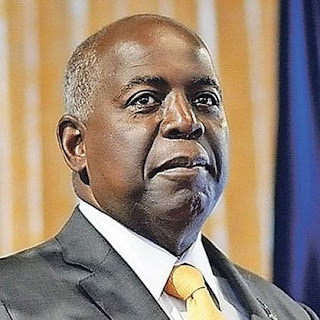The economic and security challenges we face are great, and we welcome CELAC’s initiatives to strengthen cooperation in facing them. Collaboration makes us stronger, and leads to faster and more durable solutions
Buenos Aires, Argentina - January 24, 2023 - Colleagues: Over the past several years, the Covid-19 pandemic compounded the complex problems we already faced, including climate change, economic inequality, and increasing threats to democratic values and human rights.
These growing challenges threaten our safety and security and undermine our pursuit for economic dignity.
Every one of our citizens deserves the right to experience the joys of family life, to do meaningful work, and to live lives full of purpose.
When we gather in regional meetings like this one, we must make sure that our debates and agreements concerning infrastructure and institutions always prioritize results that make a difference at the level of individual families. People must come first. And until doors of opportunity are open for all, we cannot rest.
Climate Change
Colleagues: Rising sea levels pose an existential threat to my country. In 2019, a Category 5 storm devastated two of our main islands.
We are not and have never been the polluters, yet we suffer from the greatest vulnerabilities caused by carbon emissions.
Our debt burden remains high, in significant part due to these climate risks, including the need to regularly rebuild homes, businesses and infrastructure after devasting hurricanes. Our cost of borrowing also prices in the risk of future hurricanes; we are already paying a high price for the intensifying weather patterns of tomorrow.
We urgently need the developed countries to honour their commitments to compensate for the Loss and Damage associated with climate change. And in order to build resiliency, we urgently need finance and access to technology.
Each of our countries must keep the pledges we’ve made, in this and other settings, to reduce our own emissions. We have seen glimpses of a future we cannot survive; we must change course, or perish. It is that simple.
Regional Peace and Security
Colleagues: Democracy cannot be taken for granted; it is a commitment that must be continually renewed. Just over two weeks ago, a violent mob stormed government buildings in Brazil in an effort to overturn the outcome of free and fair elections.
I reiterate the solidarity of The Bahamas, and CARICOM, with President Lula de Silva and the Government of Brazil, and our unwavering commitment to democracy and rule of law.
The scenes in Brasilia uncomfortably echoed those just a few years ago in Washington, DC. Political violence, in all its forms, must be condemned anywhere in the Americas.
Haiti
Colleagues: The crisis in Haiti is getting worse. The tragic situation there continues to pose a substantial threat not only to Haitians, but also to The Bahamas and neighbouring countries, all of whom are experiencing a significant increase in irregular and often dangerous migration.
With the support and leadership of Haiti, collectively, we can, through CELAC and other regional organizations, help Haitians build a path out of crisis.
We commend Haitian-led efforts to hold elections before the end of 2023, to arrest the threat to public security posed by violent gangs, to relieve hunger and malnutrition, and to alleviate the political crisis.
Enhanced regional partnership can especially help to scale up capacity-building for the local police, and tackle trafficking, particularly in people, contraband and guns.
These Haiti-led solutions provide promising alternatives to the usual inclination to carry out activities in Haiti without Haitian direction, and the preference for investing in the strengthening of the NGOs in Haiti, as opposed strengthening her public institutions.
Extra-Regional Partnerships
In terms of the wider region, the economic and security challenges we face are great, and we welcome CELAC’s initiatives to strengthen cooperation in facing them. Collaboration makes us stronger, and leads to faster and more durable solutions.
International Obstacles to National Development
And even while we pursue national development, other international partners pursue policies which harm our progress. The Bahamas will continue to voice its displeasure with the discriminatory practice of the blacklisting of countries. I invite you to join us.
We will also continue to advocate against the unfair use of GDP per capita to determine how or if developing countries, in vulnerable developing regions, qualify for reasonable concessionary financing or grants.
The use of the Multi-Vulnerability Index in assessing eligibility for help, rather than the blunt, outdated measurement of GDP per capita is a fairer measurement. I invite you to join us in advocating for mutual agreement of alternative eligibility criteria for international financing and Overseas Development Assistance.
Summit Declaration




